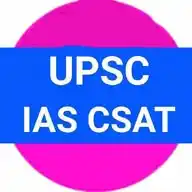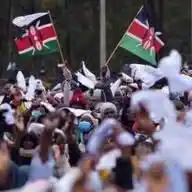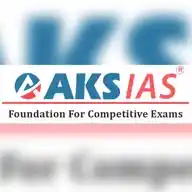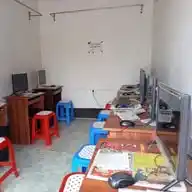Civil Judge
878 subscribers
Similar Channels
Swipe to see more
Posts
*🛡️Constitutional bodies in India* ♟️Attorney General of India ♟️National Commission for Scheduled Castes, ♟️National Commission for Scheduled Tribes, ♟️National Commission for Backward Classes, etc. *🛡️Statutory Bodies in India* ♟️National Commission for Women ♟️Central Vigilance Commission ♟️National Green Tribunal
*🛡️Committee Name -- Establishment Year -- Details* ♟️ *Kapur Commission -- 1966* -- The Kapur Commission was a commission of inquiry of Mysore, India, into the murder conspiracy of Mohandas Karamchand Gandhi. ♟️ *Khosla Commission -- 1970* -- To re-investigate the death of Subhas Chandra Bose ♟️ *Mandal Commission -- 1979* -- Mandal Commission was constituted in the year 1979 with the objective of "identification of socially or educationally backward class". This commission was headed by Indian B.P Mandal. ♟️ *Mukherjee Commission -- 1959* -- To re-investigate the death of Subhas Chandra Bose ♟️ *Narendran Commission -- 2000* -- Narendran Commission was an inquiry commission appointed by The Government of Kerala, India, in February 2000 to study and report on the adequacy or otherwise of representation for Backward Classes in the State public services. ♟️ *National Commission to Review the Working of the Constitution -- 2000* -- To suggest changes in electoral laws
*🛡️LEADER OF THE HOUSE OF THE OPPOSITION* ♟️In each House of Parliament, there is the ‘Leader of the Opposition’. The leader of the largest Opposition party having not less than one-tenth seats of the total strength of the House is recognised as the leader of the Opposition in that House. ♟️In a parliamentary system of government, the leader of the opposition has a significant role to play. His main functions are to provide a constructive criticism of the policies of the government and to provide an alternative government. Therefore, the leader of Opposition in the Lok Sabha and the Rajya Sabha were accorded statutory recognition in 1977. ♟️They are also entitled to the salary, allowances and other facilities equivalent to that of a cabinet minister. ♟️It was in 1969 that an official leader of the opposition was recognised for the first time. The same functionary in USA is known as the ‘minority leader’.
*🛡️Language In Parliament* ♟️The Constitution has declared Hindi and English to be the languages for transacting business in the Parliament. However, the presiding officer can permit a member to address the House in his mother-tongue. In both the Houses, arrangements are made for simultaneous translation. ♟️Though English was to be discontinued as a floor language after the expiration of fifteen years from the commencement of the Constitution (that is, in 1965), the Official Languages Act (1963) allowed English to be continued along with Hindi.
*🛡️Governor Vs Lt. Governor Powers* ♟️President is final decision-making authority in case of dispute between LG and cabinet of UT. ♟️In general, Governor of a state has to act solely on the aid and advice of the Council of Ministers, whereas, the LG does not need the approval of the Council of Ministers on every matter. ♟️Unlike Governor which has dual role to play i.e. Constitutional Head of the state as well as agent of the President, LG is not Constitutional head of the UT but only an agent of President. ♟️Chief Ministers of Delhi and Puducherry are appointed by the President and not by LG, whereas the Chief Ministers of states are appointed by the Governor. ♟️CM give resignation to LG and not to Presiden *Hit 👍🏻❤️👌🏻 To Appreciate Our Consistent Efforts*
*🛡️Question Hour* ♟️The first hour of every parliamentary sitting is slotted for this. ♟️During this time, the members ask questions and the ministers usually give answers. The questions are of three kinds, namely, starred, unstarred and short notice. ♟️A starred question (distinguished by an asterisk) requires an oral answer and hence supplementary questions can follow. ♟️An unstarred question, on the other hand, requires a written answer and hence, supplementary questions cannot follow. ♟️A short notice question is one that is asked by giving a notice of less than ten days. It is answered orally.
*🛡️Vidhan Parishad (State legislative council)* *♟️Trick – TU B MJA KAR* *• T -* Telengana *• U -* Uttar pradesh *• B -* Bihar *• M -* Maharashtra *• J -* Jammu and Kashmir *• A -* Andhra Pradesh *• KAR -* Karnataka > *Hit 👍🏻❤️👌🏻 To Appreciate Our Consistent Efforts*
*🛡️Features Of Fundamental Duties* ♟️Some of them are moral duties while others are civic duties. For instance, cherishing noble ideals of freedom struggle is a moral precept and respecting the Constitution, National Flag and National Anthem is a civic duty. ♟️They refer to such values which have been a part of the Indian tradition, mythology, religions and practices. ♟️Fundamental Duties are confined to citizens only and do not extend to foreigners. ♟️Fundamental duties are non-justiciable. The Constitution does not provide for their direct enforcement by the courts.
*🛡️FUNDAMENTAL RIGHTS* 💎Part III of the Indian Constitution guarantees six fundamental rights to all the citizens: ♟️(a) Right to Equality (Articles 14–18); ♟️(b) Right to Freedom (Articles 19–22); ♟️(c) Right against Exploitation (Articles 23–24); ♟️(d) Right to Freedom of Religion (Articles 25–28); ♟️(e) Cultural and Educational Rights (Articles 29–30); and ♟️(f) Right to Constitutional Remedies (Article 32).
*🛡️Dissolution* ♟️Rajya Sabha, being a permanent House, is not subject to dissolution. Only the Lok Sabha is subject to dissolution. ♟️Unlike a prorogation, a dissolution ends the very life of the existing House, and a new House is constituted after general elections are held. ♟️The dissolution of the Lok Sabha may take place in either of two ways: 1. Automatic dissolution, that is, on the expiry of its tenure of five years or the terms as extended during a national emergency; or 2. Whenever the President decides to dissolve the House, which he is authorised to do. Once the Lok Sabha is dissolved before the completion of its normal tenure, the dissolution is irrevocable.














